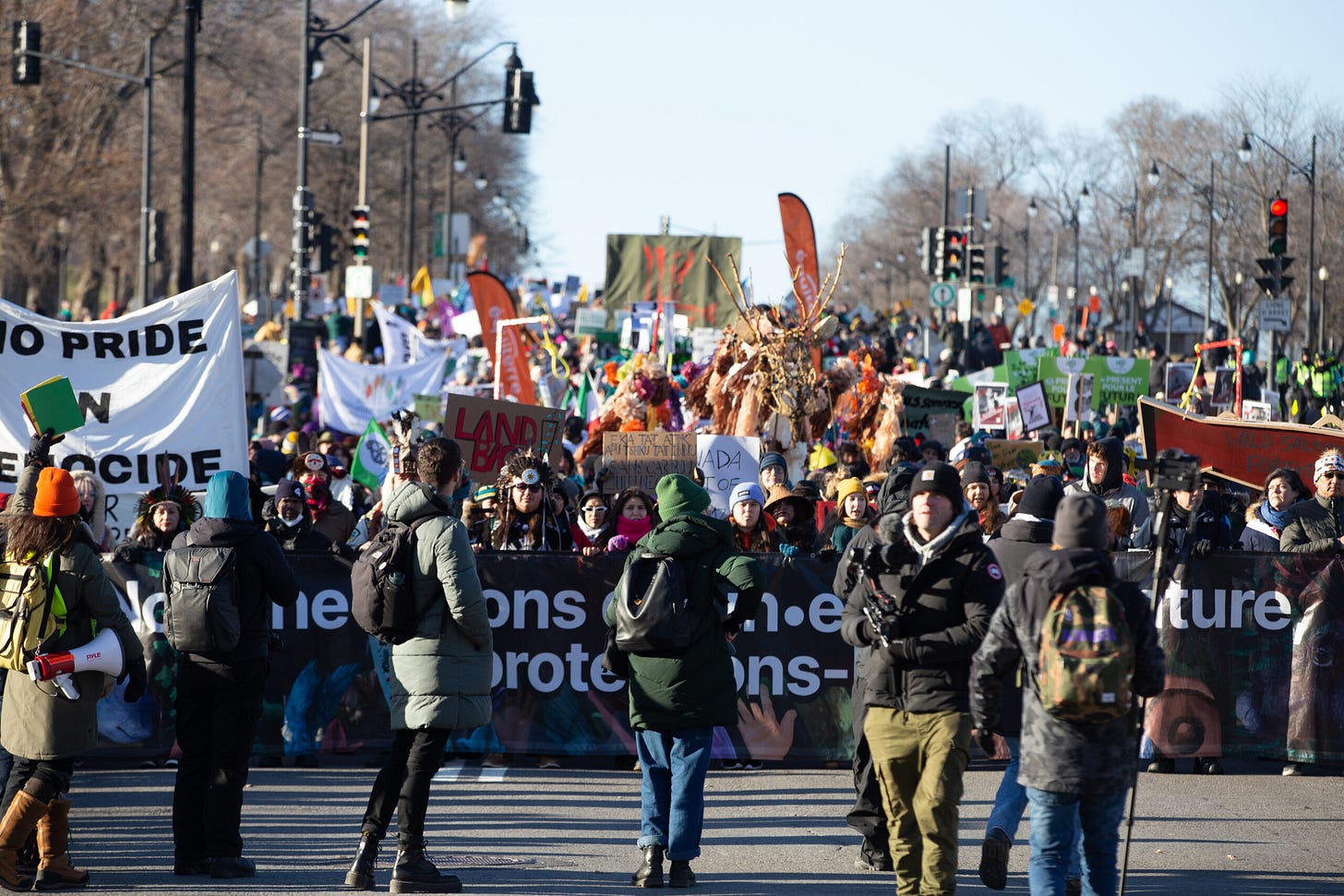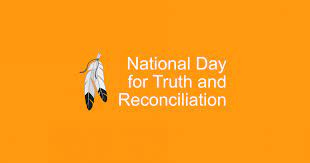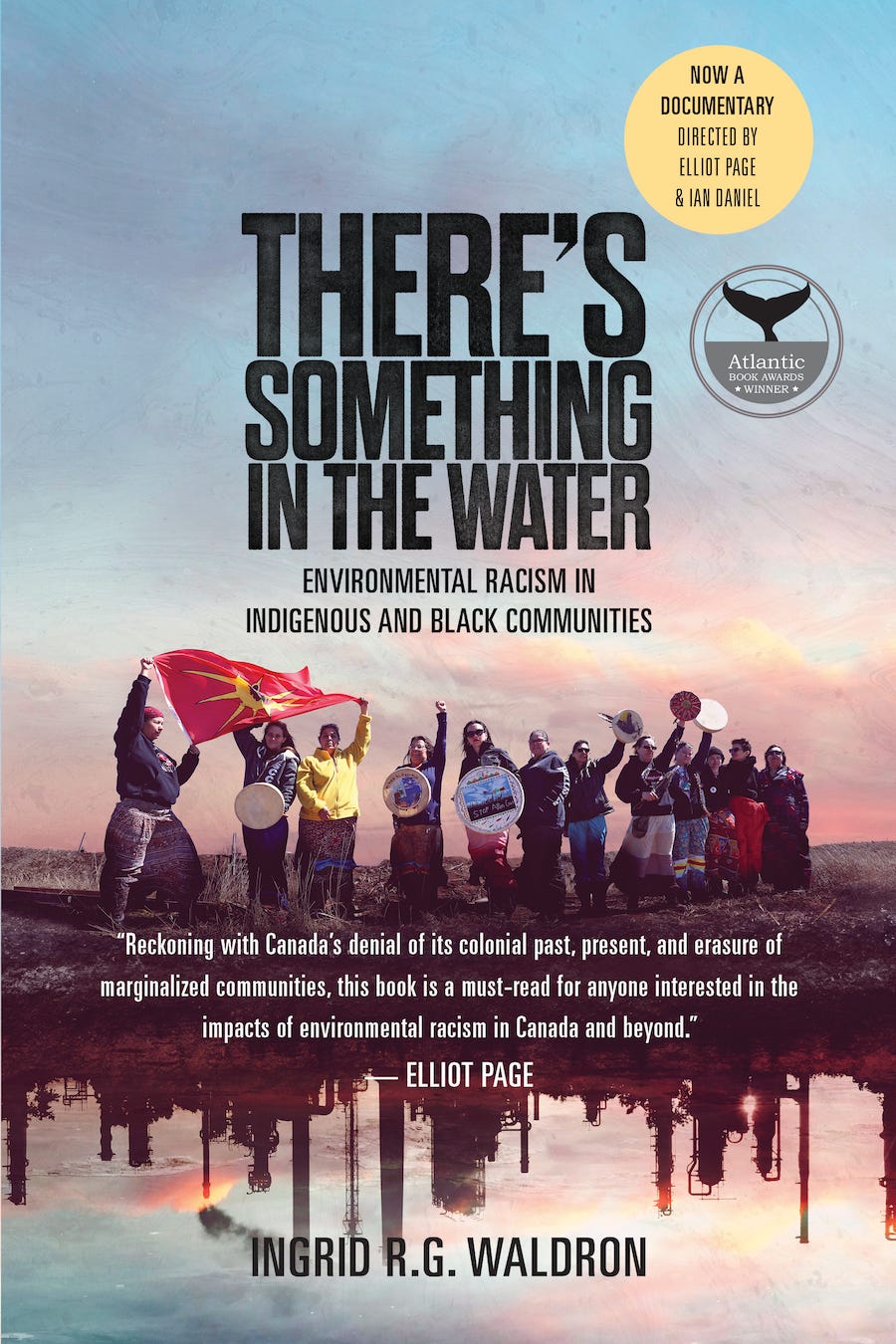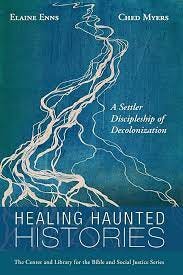Friday Nudge: No Climate Justice without Truth and Reconciliation
On the eve of the National Day for Truth and Reconciliation in Canada, two book recommendations
Welcome! I’m Jessica, and this newsletter is about faith and climate action. You can subscribe by clicking here:
Want to support my work but not ready or able to subscribe yet? You can buy me a coffee! Click here:
September 30 - National Day for Truth and Reconciliation
Tomorrow, September 30, is the National Day for Truth and Reconciliation in Canada. It is a day in which many in this country remember and honour the survivors of the residential school system, as well as the many Indigenous children who died in the schools and never made it back home. Also called Orange Shirt Day, which was started by Phyllis Webstad, a member of the Stswecem'c Xgat'tem First Nation and former residential school student, who was stripped of the beautiful new orange shirt her mother made her for her first day at school. The removal of that shirt was a forcible example of the many ways in which Indigenous communities were denied their ways of life, including their languages, spiritualities, and the very land on which they lived. People across the country are encouraged to wear orange as a visible symbol of support for truth and reconciliation between Indigenous and settler Canadians, and a commitment to the 94 Calls to Action by the Truth and Reconciliation Commission.
While Orange Shirt Day is important, one day cannot rectify the racist terror and violence perpetuated by the colonizers of the First Peoples of this land. May honouring this day be a way-post in the journey of healing for all of us. I am reminded of this truth: The history of the residential school system, which was orchestrated and run by the Canadian government and the Catholic, Anglican, and United churches in Canada, as well as its current consequences and manifestations in racist systems and policies, is not an Indigenous issue; it is a Canadian issue that falls on all of us who call Canada their home to confront and heal.
No Climate Justice without Truth and Reconciliation
Something that I have become convinced about is that climate justice is not possible without truth and reconciliation with Indigenous communities here and around the world. Indigenous communities have been leading in the climate movement; and Indigenous peoples are caretakers of 20% of the Earth, which contains 80% of the planet’s biodiversity. Finally, many of the drivers of the climate emergency are also the drivers of environmental racism, including historic and ongoing threats to Indigenous peoples globally.

Book Recommendations
To that end, here are two book recommendations to invite you to go deeper, not just on September 30 but moving forward on the path of truth and reconciliation. These, of course, must be accompanied by the 94 Calls to Action, found here.
There’s Something in the Water: Environmental Racism in Indigenous and Black Communities, by Ingrid R. G. Waldron (Halifax: Fernwood Publishing, 2018)
This book, also a documentary by the same name, offers a critical analysis of the ways in which environmental racism, through the logic of settler colonialism and white supremacy, directly impacts communities of colour within Canada. It also illustrates the intersections among various forms of oppression that serve to dehumanize communities. Finally, the author tells stories of resistance by the communities so affected, historically and continuing into today. This is not just a book about injustice, but about the fight against that injustice and for a cleaner world for all.
Like what you are reading here? Consider upgrading to a paid subscription. With a paid subscription you will receive insightful essays and inspiring sermons that explore the reality of the climate crisis in light of faith and the need for action. Every paid subscription makes it possible for me to fulfill my dream of building this work into a full-time ministry. Upgrade your subscription here:
Healing Haunted Histories: A Settler Discipleship of Decolonization, by Elaine Enns and Ched Myers (Eugene, OR: Cascade Books, 2021)
This recent book explores the history of colonization, settler journeys, and the ways that these experiences have “formed and deformed” settlers across North America, and how a commitment to decolonization and justice for Indigenous communities in both the US and Canada requires a discipleship of story sharing, truth-telling, and concrete actions of restoration and reconciliation. This is a rich, thick book that is a mix of personal narrative, ethnographical exploration, and academic research. I invite anyone committed to discipleship for the Earth community and its First Peoples to read this work.
How are you marking National Truth and Reconciliation/Orange Shirt Day?








The documentary that is based on the first book, There's Something in the Water, is excellent. It's directed and narrated by Eliot Page and I found it very moving. I have family living in Nova Scotia so it really struck a chord with me. It's available on Netflix. Here's the trailer. https://youtu.be/nKhIYFDnCoY?si=293NdbB8xIXhPEGs
Jessica, I fully agree about the strong relationship between Climate Justice and Truth and Reconciliation between Indigenous and Settler Canadians. AND I fully recommend the book 'Healing Haunted Histories' by Elaine Enns and Ched Myers. This book was a resource in the "Placing Ourselves in Colonialism" United in Learning Course in which I participated put on by our national church this year via Churchx. It is startling to consider that my ancestors arrived Oxford County from the Highlands in Scotland in 1829 about the same time the Mohawk Residential Institute school for Indigenous children began in Brantford. While my people thrived (although experiencing pain, trauma, and death at times); some of the Indigenous children died, all of them were separated from their families.